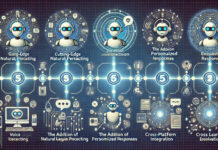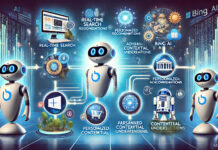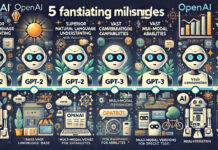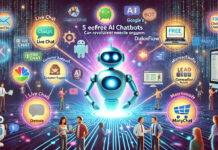Table of Contents
Artificial Intelligence (AI) is rapidly advancing and making a significant impact across a wide range of industries and professions. One of the fields where AI’s influence is becoming increasingly prominent is software engineering. The integration of AI in Software Engineering is not just a trend—it’s a transformative force that’s reshaping how software is developed, tested, and maintained. As AI continues to evolve, it is sparking important debates and raising questions about the future of the software engineering profession.
Many are beginning to wonder: Will AI eventually replace software engineers? Or will it serve as a powerful tool that enhances their capabilities? This article delves into the growing role of AI in Software Engineering, exploring how AI-driven tools are changing the landscape of coding, the impact these changes have on the role of software engineers, and the broader implications for the future of the profession. By examining the potential of AI in coding and its effects on the software development process, we aim to understand whether AI will complement or compete with human engineers, and what this means for the future of software engineering.
1. The Rise of AI in Coding
AI in Software Engineering has made significant strides, fundamentally transforming how software is developed. AI-driven tools can now write, debug, and optimize code, reshaping the software development process. These advancements increase efficiency, reduce development time, and elevate the quality of software produced.

AI-Powered Code Generation
One of the most remarkable applications of AI in Software Engineering is AI-powered code generation. This innovative technology enables AI to generate code directly from natural language descriptions. Tools like OpenAI’s Codex have made significant strides in this area, converting plain English instructions into functional code with impressive accuracy. This capability allows developers to shift their focus away from routine coding tasks and concentrate more on the critical aspects of software development, such as design, architecture, and problem-solving. By automating the more repetitive and time-consuming elements of coding, AI not only enhances productivity but also unleashes creativity, empowering engineers to tackle complex challenges and innovate in ways that were previously time-prohibitive.
Code Debugging and Optimization
AI in Software Engineering offers significant advantages in code debugging and optimization, two critical but often labor-intensive tasks. Traditional debugging can be time-consuming, requiring developers to manually search for and fix errors in code. AI greatly enhances this process by quickly detecting bugs and suggesting fixes, reducing the time and effort required from human engineers.
In addition to identifying errors, AI excels at optimizing code performance. AI tools can analyze and refactor code to improve efficiency, making applications faster and more reliable. This ability to streamline both debugging and optimization processes is a key benefit of AI in Software Engineering, allowing developers to focus on more complex and creative aspects of software development.
Automated Testing
Automated testing is a key area where AI in Software Engineering truly shines. AI-driven tools can efficiently create and execute test cases, quickly identifying issues that traditional methods might overlook. This automation ensures thorough testing, catching bugs, inconsistencies, and vulnerabilities with precision. AI’s ability to suggest fixes further streamlines the development process, making it more efficient.
By reducing the need for manual intervention, AI frees up engineers to focus on more complex and creative tasks. This approach not only enhances the reliability and robustness of software but also speeds up delivery times. The integration of AI in automated testing contributes significantly to the overall quality of software solutions, ensuring they are both reliable and robust.
2. Impact on Software Engineering
The integration of AI in software engineering brings many benefits but also raises concerns about the profession’s future.
Increased Productivity
The integration of AI in Software Engineering has significantly enhanced productivity by automating a wide range of repetitive and time-consuming tasks. These AI-driven tools can handle everything from code generation to debugging, allowing software engineers to shift their focus away from routine, monotonous work. By automating these tasks, AI not only speeds up the development process but also reduces the potential for human error, ensuring a higher quality of code with less effort. This automation enables engineers to allocate more time and energy to the complex and creative aspects of software development, such as designing robust architectures, optimizing performance, and innovating new solutions.
Furthermore, AI in Software Engineering empowers engineers to tackle more strategic challenges. With AI taking care of routine tasks, engineers can concentrate on refining system designs, improving user experience, and addressing critical problems that require human intuition and creativity. The ability to focus on these higher-level tasks not only leads to more innovative software solutions but also contributes to greater job satisfaction among engineers, as they can engage in work that is more intellectually stimulating and impactful. Ultimately, the productivity gains achieved through AI allow teams to deliver more sophisticated and reliable software products in shorter timeframes, pushing the boundaries of what is possible in software engineering.
Skill Shift
The integration of AI in Software Engineering is leading to a significant shift in the role of software engineers. Traditionally, software engineers have been responsible for writing and debugging code, designing software architecture, and managing the overall development process. However, as AI tools become more sophisticated, these responsibilities are evolving. Engineers are now increasingly tasked with supervising AI tools that automate many of the coding tasks that were once manual. This shift means that engineers must not only understand how to use these tools but also how to fine-tune the algorithms that drive them to ensure they produce the desired outcomes.
Additionally, the rise of AI in Software Engineering demands that engineers acquire new skills beyond traditional programming. Understanding AI algorithms and data science is now crucial. Engineers must grasp machine learning models, data analysis principles, and the integration of AI-generated code into larger systems. This shift in skills is essential for leveraging AI effectively, enabling engineers to innovate and tackle complex problems in an increasingly automated development landscape. As AI evolves, adapting to these technologies will be vital for engineers aiming to stay at the forefront of the field.
Job Displacement Concerns
The rapid rise of AI in Software Engineering has understandably sparked concerns about job displacement among software engineers. As AI tools become more adept at handling tasks like code generation, debugging, and even automated testing, some fear that these advancements could render human engineers obsolete. The prospect of AI taking over tasks traditionally performed by engineers has led to anxiety about the future of the profession and the security of jobs in the software industry.
However, many experts in the field believe that AI in Software Engineering will not replace human engineers but rather augment their capabilities. While AI excels at automating routine and repetitive tasks, it still lacks the creativity, intuition, and problem-solving abilities that are essential to software development. Human engineers bring unique perspectives and insights that are critical when designing innovative solutions, making ethical decisions, and adapting to new challenges. Instead of viewing AI as a threat, it can be seen as a powerful tool that enables engineers to focus on more complex and creative aspects of their work, ultimately leading to higher productivity and more advanced software solutions.
3. Will AI Replace Software Engineers?
The question of AI replacing software engineers is complex. While AI transforms the field, it is unlikely to replace humans entirely.
Human Creativity and Innovation
AI in Software Engineering has made remarkable strides in automating routine tasks and enhancing efficiency. However, there are certain aspects of software development where AI falls short—particularly in creativity and innovation. Software engineering is not just about writing code; it involves designing novel solutions to complex problems, often in ways that require out-of-the-box thinking. Human engineers are uniquely equipped to tackle these challenges because they can draw on a wealth of experience, intuition, and a deep understanding of context that AI currently cannot replicate.
Moreover, creativity in software engineering often involves adapting to changing requirements, a skill that demands flexibility and insight. While AI in Software Engineering can follow pre-set algorithms and learn from data, it lacks the human ability to intuitively shift strategies, reimagine solutions, and innovate when faced with unforeseen challenges. This adaptability is crucial in a field where project specifications, technologies, and user needs can evolve rapidly. As a result, human engineers remain indispensable in driving innovation, ensuring that the software developed is not only functional but also creative and forward-thinking.
Ethical and Moral Decision-Making
Software development frequently entails complex ethical and moral considerations. These decisions often involve understanding societal values, ethical principles, and the potential impacts of technology on individuals and communities. Human engineers are uniquely equipped to navigate these nuanced challenges, ensuring that software aligns with broader societal values and ethical standards.
In contrast, while AI systems excel at processing vast amounts of data, they lack the nuanced understanding required for ethical decision-making. AI in Software Engineering may assist with technical tasks, but it cannot fully grasp the moral implications of its actions or the broader consequences of software decisions. As a result, human oversight remains crucial in ensuring that ethical considerations are appropriately addressed throughout the software development lifecycle.
Collaboration and Communication
Software engineering is inherently a collaborative discipline, requiring seamless interaction with various stakeholders and effective teamwork. Engineers must communicate complex technical details clearly to non-technical team members, clients, and other collaborators. This often involves negotiating requirements, addressing concerns, and aligning project goals. Human engineers bring essential interpersonal skills to this process, such as empathy, active listening, and negotiation, which are crucial for fostering productive collaboration and resolving conflicts.
AI in Software Engineering can enhance these processes but cannot fully replicate the nuanced communication and relational dynamics that human engineers provide. While AI tools can facilitate certain aspects of project management and communication, they lack the depth of human understanding needed for truly effective collaboration. This makes human engineers indispensable for navigating the social and interpersonal aspects of software development.
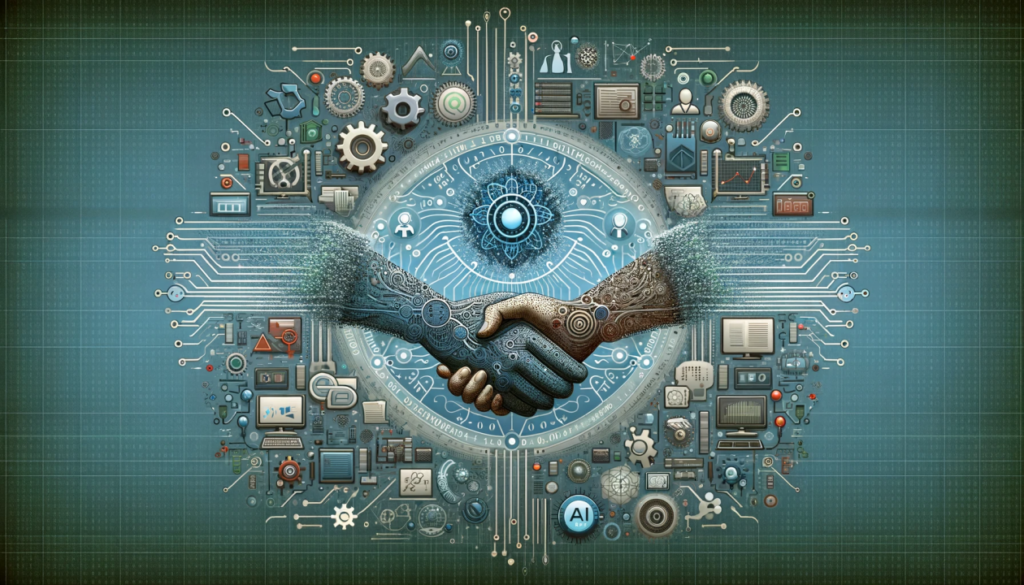
Continuous Learning and Adaptation
While AI excels at learning from vast amounts of data, it falls short in its ability to adapt to new and unforeseen challenges. The field of software engineering constantly evolves with emerging technologies, shifting requirements, and complex problems that demand creative solutions. AI in Software Engineering may streamline repetitive tasks and offer valuable insights, but it struggles with the nuanced understanding required to navigate novel issues or adapt to sudden changes.
In contrast, human software engineers possess the ability to learn continuously and adapt flexibly to new scenarios. They can incorporate evolving best practices, pivot strategies based on context, and creatively address unique challenges. This human capability for ongoing learning and adaptation remains a crucial strength that complements the advancements brought by AI in software engineering.
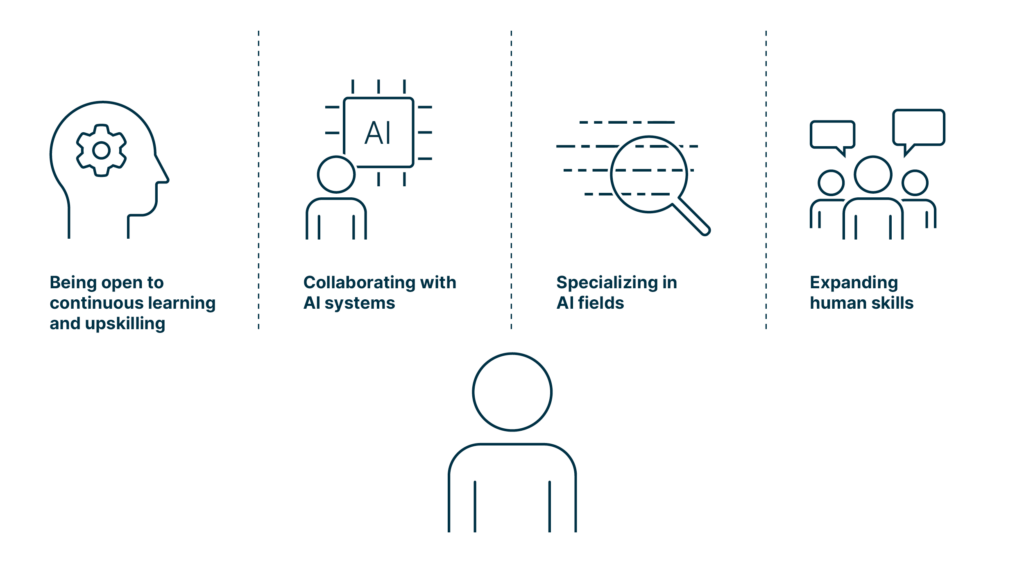
4. The Future of AI and Software Engineering
The future of AI in Software Engineering is poised to create a dynamic and complementary relationship between artificial intelligence and human engineers. AI technologies are expected to take on increasingly complex tasks, such as automating routine coding processes, optimizing algorithms, and managing vast amounts of data. This integration will significantly enhance productivity and efficiency, allowing development teams to focus more on strategic and innovative aspects of software creation.
However, despite the advancements in AI, human engineers will continue to play an indispensable role. Their creativity, ethical judgment, and ability to collaborate effectively with diverse teams are crucial for tackling complex problems and ensuring that AI systems align with societal values. As AI in Software Engineering evolves, the synergy between AI and human expertise will drive the industry forward, fostering innovation while preserving the essential human touch in software development.
5. Embracing AI in Software Engineering
To thrive in the evolving landscape of software development, engineers must proactively embrace AI and leverage its advanced capabilities. This shift involves acquiring new skills, such as a deep understanding of AI algorithms and proficiency in data analysis. By integrating AI tools and techniques into their workflow, software engineers can significantly enhance their productivity. AI-driven solutions offer automation of repetitive tasks, improved accuracy in coding, and accelerated development cycles.
Moreover, embracing AI in software engineering opens doors to innovative problem-solving approaches. Engineers who adapt to AI will not only streamline their processes but also contribute to pioneering solutions that push the boundaries of technology. This proactive approach ensures that engineers remain at the forefront of industry advancements, harnessing AI to drive meaningful progress and efficiency.
Conclusion
AI is transforming software engineering, offering tools that enhance productivity and streamline development. While AI in Software Engineering will handle more routine tasks, human engineers will remain indispensable for their creativity, ethical judgment, and problem-solving abilities. The future of coding will involve a collaborative relationship between AI and human engineers, leading to innovative software solutions. By embracing AI and adapting to the changing landscape, software engineers can ensure they remain at the forefront of technological advancement.
For more insights into the impact of AI on various fields, stay tuned to our series on AI technologies, Opinions and Analyses.
FAQ
1. How is AI transforming software engineering?
AI in Software Engineering is transforming the field by automating tasks like code generation, debugging, and testing, leading to increased productivity and efficiency.
2. Will AI replace software engineers?
While AI in Software Engineering is reshaping the field, it is unlikely to replace human engineers entirely. Human creativity, ethical judgment, and collaboration remain essential.
3. What new skills do software engineers need in the age of AI?
Software engineers need to understand AI algorithms, data science, and machine learning to effectively supervise AI tools and integrate AI-generated code.
4. How does AI improve the software development process?
AI in Software Engineering improves the development process by automating routine tasks, optimizing code, and ensuring thorough testing, which enhances the quality of software.
5. What is the future of AI and software engineering?
The future will involve a collaborative relationship between AI and human engineers, where AI handles routine tasks, and human engineers focus on creativity, ethics, and innovation.
